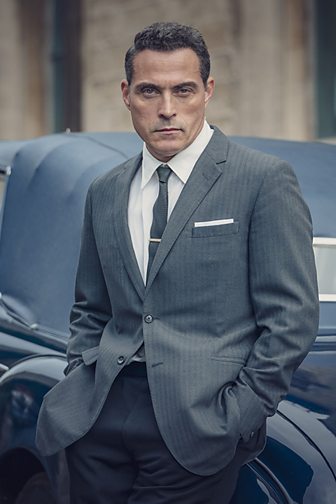Mark Easterbrook
A widowed antique dealer, who despite having found love again, is still haunted by the tragic death of his first wife.
| Fact title | Fact data |
|---|---|
| Played by |
|
Rufus Sewell on Mark
Can you describe your character?
Mark Easterbrook is a man of his time. He has a certain confidence about him, which carries him quite far. To all intents and purposes he is someone who makes his life look good from the outside.
Mark Easterbrook is a man of his time. He comes from a very comfortable background, is used to wealth and has extremely good taste. He works in high-end antiques and has his own, very large store in a smart part of town. He likes flash motorcars and is a society person and is relatively well known. He has a certain confidence about him, which carries him quite far. He got married quickly to a very young and beautiful woman. To all intents and purposes he is someone who makes his life look good from the outside, but on the inside it’s a different story. He has a side to him that you wouldn't necessarily spot.
What drew you to the script?
It has a viciousness to it, a dry, witty nastiness which appealed to me. It also has a surprisingly dark turn. In terms of genre, it’s a little bit indistinct. You may think that it’s one thing, and it may or it may not turn out like that. I was really surprised by where it went. I’ve always loved watching Agatha Christies and I’d never made one, so I was delighted to have the script sent to me.
Which scenes have you found particularly memorable to do?
Filming scenes with Henry Lloyd-Hughes has brought out such a different aspect of my character because we have a bit of fun together - our characters go out on the town together. It’s a very different feel with those scenes and they were great fun to do. All of the actors are so fantastic - Kaya, Georgina and the three brilliant women playing the witches! And Bertie Carvel was really wonderful, he’s a completely different character to who Mark Easterbrook is.
How do you think the show will feel different to a usual whodunit?
It’s like reading something that’s a cross between An Education, The Wicker Man and Jacob’s Ladder. There’s an element to this story that is really quite surprising. It reminded me of a phrase Hitchcock once made about one of his film scripts: "It’s a nice, nasty little piece."






